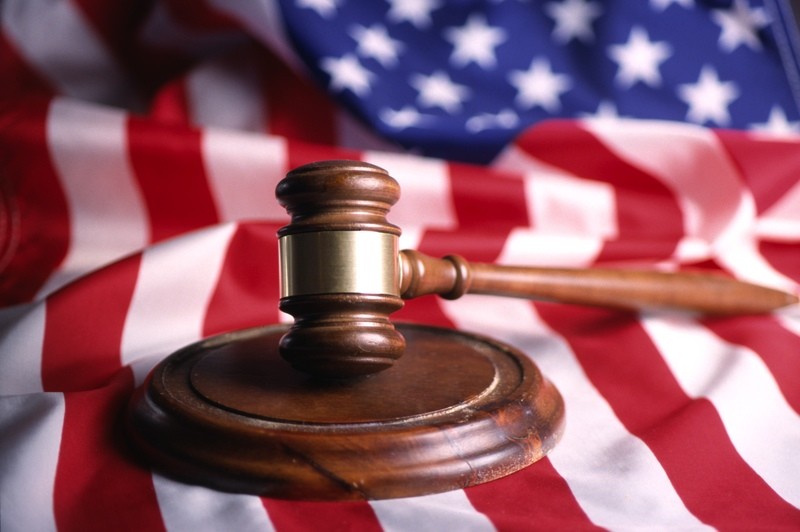Database marketing: Feature Article

Database marketing consists of the gathering and processing of consumer data to aid in the direct marketing of products. The information collected will be stored in the company database. Marketing efforts have used the existing databases for a long time to send direct mail pieces, but databases are now being used to store information for online campaigns like email marketing. Database marketing allows consumers to learn more about their customers because they are able to track varying degrees of information. Tracking the information of customers will help a company determine the value of it's customers and determine what type of marketing campaigns they typically respond to.
When a company incorporates a database marketing technique, they are using every possible strategy to gather the information. For example, a company will use statistical techniques to determine the customer behavior and catalog them in the database with different categories. Several companies will send salesmen and other prospects out into the marketplace to build the customer database. A standard database consists of the customer name, address, and transaction information from past purchases. The database can then be divided into categories based on this information. For example, a marketer may decide they want to target large organizations that typically donate to charitable organizations. By having a well-maintained database, a company will be able to compile a listing of these organizations for their marketing campaign.
Continue reading "Database marketing: Feature Article"Thriving during rough economic times by learning to budget well: Feature Article

One thing that you can do to help thrive during rough economic times is to learn how to budget your money, which actually involves creating a budget that you can and will follow. But the thing is that when it comes to creating a budget most of us find that it is an overwhelming task because of the fact that we are forced to look at our spending habits which none of us actually want to do. But the good news is that creating a budget is actually rather easy to do and the best part is that when you create a budget to help you survive most budgets are actually pretty flexible. What this means is that if you find yourself over spending in one area no matter what you do to help curb that spending then you simply need to adjust your budget to reflect the overspending in one area and cut out something in another area to make up for it. But another reason that budgets are flexible is because of the fact that just because you have set aside a certain amount for each category in your budget that doesn't mean you have to spend that amount, in fact if you spend less than that it is a good thing and it will only help you to thrive even more during tough economic times.
Protecting yourself from bank failure during tough economic times: Feature Article

Many people are concerned now about what is going to happen with the economy.There are many reasons why people are concerned and some believe that all of those reasons are justified.Money is very important in life and is necessary to help us get through the day all the time.Banks are certainly something that is out of the control of most people.Here is some more information about things you can do to protect yourself in the case of a bank failure.Banks are very important for the economy and people and businesses rely on them to loan out money so that they can do the things they need to do from day to day.When you are choosing a bank you need to know what is covered and what is not.Knowing what you're up against in tough economic times is one of the most valuable things that you can have at your disposal.Understanding how your money is protected and what types of accounts are insured by the government and what that means for you is another thing this is very good to understand.
Why the economy is failing, and what you can learn to not fail with it: Feature Article

It is not secret that the economy is in decline, and some would say it is failing. The following is a look at why the economy is failing, and what you can learn from it so that you do not fail financially as well:
- Big Banks are failing, even many of those that survived the Great Depression of the 1930s are now collapsing.
- The U.S. dollar, once as good as gold, has lost more than half its value over the past six years.
- Our economy is based on the easy availability of cheap oil but prices are skyrocketing.
- Foreclosure rates are high and rapidly increasing.
- Consumer spending is declining because Americans carry high debt, and basically are broke with maxed out cards.
- The biggest investment most people make, their home, is dropping in value. In fact, house values have fallen to levels not seen since the last Great Depression!
- The government is dumping money into the war in Iraq.
- American health care systems are collapsing, hospitals are going under, and insurance premiums are going up.
- America is outsourcing, which means that millions of high-paying manufacturing jobs are lost because it is cheaper to have things made in China, India, and Mexico then in the US. Continue reading "Why the economy is failing, and what you can learn to not fail with it: Feature Article"
Investment risks during tough economic times: Feature Article
Anyone who pays attention probably knows that the economy is headed South, and conventional wisdom has it that when the economy goes bad, you pull in your horns, tighten your belt, cut down expenses, and save. However, sometimes investing can have a real advantage, especially if stocks are low and you do not plan to cash them in for several years. However, investing is never cut and dry, and there are all sorts of ways to invest. The following is a look at some of the risks of investing during tough economic times, and how to avoid risks as best as possible.
Continue reading "Investment risks during tough economic times: Feature Article"How to find opportunity in a struggling economy: Feature Article

Everywhere that you turn all that you hear about is today's struggling economy and how it seems to just be getting worse. And with how bad the economy actually is many people are leery about trying to go about and start a new business because they are so afraid that they are going to fail. The reason that most people think a new business is going to fail from the get go is because of how bad the economy has been affecting all of us consumers, not to mention the fact that both gas and grocery prices have been rising which means that consumers are spending even less than they normally do at stores because they only want to spend money on the things that they need to survive.
But just because the economy is facing rough times and the stocks keep going down in value on a daily basis that doesn't mean that everything is bad for opening up a new business. The reason for this is that you are going to need to think about the fact that even though the economy is facing rough times right now that doesn't mean that it is going to continue. Basically if you plan on opening a business you need to think about the fact that times are going to change in the future. You want to remember the fact that the future outlook is going to be brighter in the long term than it is currently. In fact there are plenty of things that can happen that you would never have expected when it comes to the struggling economy and finding opportunities.
Continue reading "How to find opportunity in a struggling economy: Feature Article"What costs you can cut back on during tough economic times: Feature Article

There are a lot of costs you can cut back on during tough economic times. However, this is going to change from person to person. However, no matter who you are there are some basic financial principles you can implement to help you cut costs and make it easier to manage during tough economic times:
First, buy less on credit: You are going to cut back a lot of expenses here if you do not buy on credit because you will not pay as much in interest. When times are tough every dollar counts, so instead of spending your hard earned dollar on interest payments, you can use it to buy more groceries, or save for big purchases.
Second, if you are going to use a credit card, use one with low interest rates and no annual fees: If you are going to use a card, and pay interest, make sure it is as small of an interest payment as possible. Shop around, and look for the card offering the best terms.
Third, as you pay off debts, pay off the debt with the highest interest rate first. This is going to cut your overall debt costs by a lot because it means in the long run you will owe less in interest.
Financial peace of mind during tough economic times: Feature Article

The economic crunch we are in has left many people feeling really insecure about their finances. They are worried about making ends meet, and are not sure what the economic downturn is going to mean to them financially. We know where the market has been, but nobody truly knows where it is going in the future. While in the past the markets have bounced back, no one can know for sure. However, this does not mean you have to fear financially. The following are some great tips for having financial peace of mind during tough economic times.
Before we get to the specific tips, it is essential that you understand that if you want to not just survive uncertain economic times, but find peace during them, you have to get down to the basics financially.
Continue reading "Financial peace of mind during tough economic times: Feature Article"What is a recession?: Feature Article

What is a recession?
According to macroeconomics a recession is a decline in a country's real gross domestic product or negative real economic growth for two or more successive quarters of a year, so basically for half of the year or more. In fact a recession can actually involve simultaneous declines in coincident measures of overall economic activity including employment, investment, and corporate profits. But recessions are also associated with falling prices, which is also referred to as deflation. But a recession can also be associated with sharply rising prices, which is called inflation, as long as these sharply rising prices are in a process known as stagflation. If a recession goes on for a long period or is a particularly bad recession then the recession is no longer considered a recession, but it is now an economic depression.
Continue reading "What is a recession?: Feature Article"The coming economic crash: Feature Article

Introduction
The coming economic crash has been attributed to a lot of different things.While some look to the changes that are being made by other countries for an explanation of this country's woes, others are quick to point the finger at politicians and local leaders for not having foreseen these hard economic times and done something to prevent them.It is also important to realize the idea of a coming economic crash is still a matter of opinion.While few will argue that we are in a period of a recession, many people still have faith in the ability that the U.S. market has in maintaining long-tern financial stability.Whether we are facing a complete crash or a stumbling block that we will look back on with little recollection, it may be impossible to say definitely one way or the other.What can be said is a report of what has happened in the past and form theories for what economic situations lie ahead.
Continue reading "The coming economic crash: Feature Article"Recession proof your business: Feature Article

Introduction
Times of recession can really break a lot of businesses down.Lower demand makes doing business hard and making money even harder.Some businesses do not have what it takes to weather the storm of uncertainty that a recession brings, while others are able to adapt and maintain their presence in the market.There are ways that even the smallest of businesses can become "recession proof."With planning, innovation and a strong foundation, the following suggestions can aid you as you recession proof your business.
Continue reading "Recession proof your business: Feature Article"How to make money in a recession: Feature Article

Introduction
The first thing that goes through people's minds when they think of a recession is usually a worst case scenario.People think of the most catastrophic situations where they loose all of their money and end up impoverished when really there are plenty of ways not only to remain financially secure but also to actually make money in a recession.Recessions are different than a depression in that recessions affect far fewer people and the people that are affected generally belong to specific groups of industry.But it is the ripple effect that tends to make a recessionary period seem more far reaching than it may actually be.This is in no way meaning that recessions are nothing to be worried about, they are real and real people loose real jobs and are out real money, but so long as you are able to adapt to the changes that the recession may have on your particular stream of income you should be just fine.
Continue reading "How to make money in a recession: Feature Article"How recessions affect various job industries: Feature Article

When it comes to facing a recession one thing that most people fear is that they are going to lose their jobs. And in fact this is a very real free because millions of people actually do lose their jobs when our economy is in a recession, which is why the unemployment rates go up during the times of a recession. But just because you have lost your job or even if you are looking for a job during a recession that doesn't mean you won't be able to find that job. The reason for this is that even though we might be faced with a recession or we are in a recession there are still certain employers who are still hiring, in fact they are actively looking for people to fill various job positions. Not to mention the fact that there are numerous job industries that will actually thrive during a recession.
In fact 32% of employers actually plan to add full time, permanent employees in 2008; this is according to a survey that was done by CareerBuilder.com. But on the other hand there are many employers who still plan on hiring but they don't expect to hire a bunch of people at once, they actually expect a slower, yet steady hiring environment.
Continue reading "How recessions affect various job industries: Feature Article"What state is best to incorporate in: Feature Article

When you are trying to decide which state is the best choice to incorporate your business in one thing that you need to know is that there are several factors that you need to think about. In analyzing these factors you are going to be able to make the best possible decision for your business, but if you only glance at the factors and make a small attempt to figure out the answers than you will probably end up making a mistake when it comes to choosing the best state to incorporate your business in.
Here are the factors that you need to analyze when deciding which state is going to be best:
-
- What is the state's regulatory climate?
- - What is the state's tax situation?
- - What is the state's stance on individual privacy?
- - What state will allow you the greatest flexibility to run your business the way you want to?
- - What state has the best body of statute?
- - What state offers the best business climate?
In looking at all of those questions and analyzing them it has been determined that there are two states that would be the best to incorporate your business in. The two best states would be Nevada and Delaware. But what state you choose to incorporate your business in will depend on your personal preference. So let's take a look at the reasons why people would choose each state so you can make your own decision.
Here are the reasons that people choose to incorporate their business in Nevada.
Continue reading "What state is best to incorporate in: Feature Article"Is a Sole Proprietorship right for me: Feature Article

If you are thinking about starting your own business than the first thing that you need to figure out is what type of business you are going to form. When it comes to forming a business you can form a sole proprietorship, corporation, partnership, or even a limited liability company. But the thing is you must decide which business form is right for you. And the best way to determine which business form is right for you is to take a look at the various forms to see what they are, how they work and what the advantages and disadvantages are.
What is a sole proprietorship?
Basically a sole proprietorship is a one person business that is not registered with the state as a corporation or a limited liability company. In fact this type of business structure is one of the oldest forms of business, but it is also one of the easiest forms to set up. In fact this form of business is so easy to set up and maintain that you could actually own one already without even being aware of it.
Incorporate your business online: Feature Article

What is a corporation?
A corporation is a type of business that is considered to be a legal entity that is separate from its owners, basically what this means is that the owners are not responsible for the corporations debts, including taxes. Corporations can also have an unlimited number of shareholders, but this is only true for C corporations, S corporations have their own rules.
One of the best things about corporations is that the corporation actually limits the personal liability of the owners for claims against the corporation. Most of the time the owners of the corporation are not going to be personally responsible for any of the claims or debts against the corporation, the only time they are going to be responsible is if the owners have signed a personal guarantee for some kind of credit approval. But another advantage to the corporation is that since it is a separate legal entity that also means that it has an unlimited life, which means that it can last longer than its owners.
Continue reading "Incorporate your business online: Feature Article"How to start a LLC: Feature Article

Before you can even begin to think about forming a LLC you need to know what one is. A LLC is a limited liability company and it is one of the many different structures that you can choose for your business. Here are some quick facts that you need to know about a limited liability company so you can get a better understanding of what one is:
-
- A type of business ownership that combines several features of both the corporation and partnership structures
- - Is not a corporation or a partnership, is actually a hybrid
- - Is sometimes called a limited liability corporation, but this is not correct. The correct terminology is a limited liability company
- - Owners are called members rather than partners or shareholders
- - Number of members is unlimited and can be individuals, corporations or other LLCs
- - Harder to set up than a partnership, but easier to set up than a corporation.
When it comes to setting up a limited liability company one thing that you need to know is that they are now allowed in all fifty states, it used to be that only some states allowed them. But another thing that you need to know when it comes to setting up a limited liability company is that there are only two main things that you have to do:
-
- Articles of Organization
- - Operating Agreement
Here are six steps that you can follow to form a limited liability company for your business:
Step one:
Choose a business name. This is the first thing that you need to do because without a name you cannot have a business. But when choosing a name for your business so that you can form a limited liability company you are going to need to find a business name that is not already in use in your state and one that also complies with your specific state's limited liability company business naming rules. In order to get the information that you need to know for the name requirements for your business for your specific state you are going to need to contact the Secretary of State's Office of Corporations in your state. But for the most part you can name your LLC's business just about anything that you want as long as it doesn't include the words `bank', `insurance', `corporation', or `city'. But the name of the business will have to end with `LLC' or other designations of `LLC' that are approved by your specific state.
How to preserve your copyright: Featured Article

Introduction
When you create something, whether it is a piece of art, literary master piece, etc. you want to make sure that you protect your right to claim ownership of your creation.So you go through all of the hassle of filling out the paperwork to have your work copyright protected.You pay a fee; you may even pay for an expert to look over your registration paperwork to ensure that everything has been done properly.After all of this investment of time, money and effort, you want to make sure that you are able to not only hold a copyright, but preserve the right that having an official copyright carries with it.There is a lot more to protecting your work than just holding your copyright papers.You want to make sure that people have no way of mistaking that the work they are admiring is not theirs, it is yours.So what sorts of things can you do to take your copyright claim to the next level?In the paragraphs that follow you will read of more suggestions for the kinds of things that you can do to preserve the copyright that you have worked so hard to obtain.
Giving notice
One of the most common, practical, affordable and easy things that you can do to make progress towards preserving your copyright is to use a notice.In short, a copyright notice is a mark or statement that quite clearly makes it known that the material that the notice is attached to is protected by copyright law and that any wishing to use that material must fist obtain permission from the copyright owner.It used to be a requirement that copyright holders used copyright notices on their works, but this law has such been changed to only a suggestion that is viewed as beneficial to the copyright holder.There is however still an enforced law on copyright notices that are on older materials.
Continue reading "How to preserve your copyright: Featured Article"How to copyright your work: Featured Article

Introduction
Many people have hobbies and things that they do for fun or in their spare time.Many people spend hours and hours of work on things that are important to them because they have a passion for what they work on.It is important to many people to protect the things that they spend so much time and effort on especially when they are hoping to gain from it financially.Especially when there is intent to market the product produced, it is important to protect it in as many ways as possible to protect the investment of time, money and thought that have gone into its production.If you have ever created something that you think would be able to bring you financial benefit at any future moment you should know about copyright law and how it applies to you.Here is some valuable information that can allow you to copyright your work and protect it.
Continue reading "How to copyright your work: Featured Article"How to choose a copyright attorney: Featured Article

If you have spent time creating a work, you deserve to have it protected from being stolen. If you want to protect your work with a copyright, patent, or trademark you will need a copyright attorney. Copyright attorneys specialize in published material, film, or art.
There are a number of different ways you can choose a copyright attorney. Follow the steps below:
Step #1
Start by asking your friends, family, and business associates for a referral. If you have a personal lawyer for other legal matters you can ask them for a referral for a lawyer who specializes in copyright law.
Step #2
Ask for experience information and specific case examples. You can find a copyright attorney from the Copyright Office. Your state bar association should provide a listing of copyright attorneys. Law schools should also have listings of copyright attorneys.
Digital millennium copyright act: Featured Article

Introduction to the Digital millennium copyright act
The Digital Millennium Copyright Act (DMCA) was signed into law by United States, President Clinton on October 28, 1998 after a unanimous vote by the United States Senate (which occurred on the 12th of October).The legislation implements two 1996 World Intellectual Property Organization (WIPO) treaties: the WIPO Copyright Treaty and the WIPO Performances and Phonograms Treaty.The DMCA is also recognized for its distinguishing of penalties against those who violate copyright laws on materials that are found on the internet.The DMCA addresses a number of copyright-related issues that will be discussed in more detail in the paragraphs that follow.
DMCA infringement claim requirements
The Digital Millennium Copyright Act allows for the infliction of more severe consequences on those who violate copyright laws.In order to make a claim that one has violated a copyright that you hold, the DMCA requires that all infringement claims must be in writing and must include the following information:
-
- A physical or electronic signature of the copyright owner or the person authorized to act on its behalf.
- - A description of the copyrighted work claimed to have been infringed upon.
- - A description of the infringing material and information reasonably sufficient to permit the proper authorities to locate the material.
- - Your (the one filling the claim that copyright has been violated, usually the owner of the copyright) contact information, including your address, telephone number, and email.
- - A statement by you that you have a legitimate and convincing argument that use of the material in the manner complained of is not authorized by the copyright owner, its agent, or the law.
- - A statement that the information in the notification is accurate and that you are authorized to act on behalf of the copyright owner. (source: www.copyright.gov/legislation/dmca.pdf and https://www.harvard.edu/copyright.html)
The five titles of the DMCA
The digital millennium copyright act consists of five titles.These titles are summarized below.To read the titles of the DMCA and the provisions therein in their entirety, you can do so by visiting the U.S. Copyright Office website, by downloading the PDF version of the DMCA from www.copyright.gov/legislation/dmca.pdf or by requesting that the written version of the DMCA be sent to you (the contact information for this request can also be found on the U.S. Copyright Office website).
Continue reading "Digital millennium copyright act: Featured Article"What is copyright infringement?: Featured Article

Copyright infringement happens when someone copies another person's work without permission. Anyone who copies another's work without their permission can faces serious problems. Legal action can be taken against the offender and they can even face possible prison time. In today's society the most common forms of copyright infringement are the Web. The images and content on website's can easily be taken without the consent of the owner.
What is a copyright?
In order to understand how copyright infringement works; you must first understand a copyright. Copyright laws protect your work from being redistributed or duplicated without your permission. Most copyrights are used for written work, but can be used for many other things such as photos. If you have your written work copyrighted, the protection will last the length of the author's life plus 70 additional years. Copyright infringement has become a large problem for many writers. The United States copyright laws state that "copyright is legally established the moment a work is created." Although this means you legally own this work, it is still a smart idea to register at the U.S. Copyright Office.
The best practice you can take is to put a copyright notice on every work you create.
There are 3 things that represent a copyright notice:
- The word "copyright", the symbol "c", or the abbreviation "Copr."
- The year of the first publication of the work (for example, if you created a work in 2003, and then added changes to it in 2007, you should still put copyright 2003 on the document)
- The name of the copyright owner
What can I copyright?
Copyright laws apply to several things. The most common things that you can copyright are as follows:
- Written work such as books, stories, journals, articles, and HTML coding (computer programs)
- Pictures or graphics
- Music or song lyrics (phonorecords)
- Architectural blueprints
- Scripts for television, plays, screenplays, or movies
- Audiovisual recordings
- Sound recordings
- Web site content, design, or graphics
What is Copyright protection?: Featured Article
Protecting your hard work with a copyright is important to keeping it from being stolen by others who did not spend the time creating it like you did. In order to understand copyright protection, you must know a little about copyrights:
How a copyright works
The copyright is owned exclusively by the author of the work, unless written permission is granted to other individuals. If you sign over the complete work to someone else, they become the copyright owner and can do what they wish with your work. Many companies have people working for them that create the work and are unsure of who the real copyright owner is. "Work for hire" is considered any work done by an employee of an organization. The employee is the copyright owner, however your company may require signed documentation that states all work created by that employee is owned and copyrighted by the company.
There are several reasons to copyright your work. If anyone has duplicated or stolen any piece of your work, you have the right to file a lawsuit against that person. In order to take legal action, you must register your work at the U.S. Copyright Office. The U.S. Copyright Office will send you a certification of registration showing you have physical proof of legal protection to your work.
By registering your copyright, it will also hold up in other countries that have established a copyright agreement with the United States. If you should choose not to register your copyright, you can still use the copyright sign or copyright symbol to inform people that you are aware of your legal rights.
What does a copyright protect?
A copyright will protect the work you create. Here are the works that you can copyright:
-
- Literary, dramatic, and musical works
- - Graphics and pictures
- - Architectural plans
- - Computer programs, and HTML coding
What is not protected by copyrights?
There are some works that are not protected by copyright laws:
-
- Works that have not been recorded or written down
- - Slogans, names, short phrases, titles, designs, coloring, and ingredients or contents.
- - Ideas, discoveries, methods, systems, concepts, and processes
- - Common property that does not contain original authorship such as calendars, weight charts, tape measures, rulers, height charts.
Trademarks versus Copyrights: Featured Article

Many people often tend to confuse copyrights and trademarks because they are not aware of what they are. But people also tend to confuse copyrights and trademarks because they have some things in common. One of the main things that they have in common is they are both used to protect intellectual property and they are both referred to as intellectual property protection. But what you really need to know is the differences between trademarks and copyrights because they are very different from one another and both of them serve different purposes. So in order to ensure that you apply for the right type of intellectual property protection you need to learn what each type is, what they cover and what the differences are between the two.
What is a Trademark?
The first thing that you need to know about trademarks is that they are also referred to as a servicemark. A trademark is a word, name, symbol or device that is used in trade with goods to indicate the source of goods. But the trademark is also used to help distinguish certain goods from others. So basically a trademark is something that allows goods or services to stand out from other goods and services, such as the logo for a company or a slogan for a product. A servicemark is pretty much the same thing as a trademark except that the servicemark identifies and distinguishes the source of a service rather than a product. In most cases the terms trademark and mark are used to refer to both trademarks and servicemarks.
Trademark searches - how you can conduct them: Featured Article

Why you need to do a trademark search
When it comes to doing a trademark search there are a few different reasons why you will need to conduct the search.
Here are the main reasons why you need to do a trademark search:
- The main purpose of the trademark search is to determine if someone has already trademarked the trademark that you are intending to use. The reason that you have to do the search to ensure that the trademark is not already registered is because the U.S. Patent and Trademark Office will not register the same trademark twice.
- Another purpose for doing a trademark search is to ensure that your trademark is not similar to another company's trademark, to help avoid trademark infringement. The reason for this is that if your trademark is similar to another companies then the U.S. Patent and Trademark Office is going to reject your application because of trademark infringement. What this means is your trademark is going to be denied because it is too close to another company's trademark and that means that consumers can confuse the trademarks.
What is a common law search?
Most of the trademarks that you will be searching for are going to be found in the federal government's record because a lot of companies actually register their trademarks because that option provides you with more protection. But since you don't have to legally register your trademark to use it you can still own a trademark because of common law trademarks. So in order to do a detailed search not only are you going to need to conduct a federal trademark search, but you are also going to need to conduct a common law search.
A common law search for trademarks involves searching beyond government records. Common law searches can entail checking phone directories, yellow pages, industrial directories, state trademark registers, the internet, and many other places. The reason that you are searching through all of these places is because you are trying to determine if a certain mark is being used by others when they have not filed for federal trademark registration.
Continue reading "Trademark searches - how you can conduct them: Featured Article"Trademark law basics: Featured Article

What is a trademark?
A trademark is a word, symbol, or phrase that is used to identify a particular manufacturer or seller's products and distinguish them from the products of another manufacturer or seller. For example the trademark "Nike" and the Nike "swoosh" are both used to identify shoes and other products that are made by Nike and to distinguish them from shoes and products that are made by another company. But if a mark is used to identify a service rather than the products, such as "Jiffy Lube", then they are called service marks, but they are treated the same as trademarks.
In some cases trademark protection can extend beyond words, symbols, and phrases to include other aspects of a product, such as its color or its packaging. A good example of this is the unique shape of the Coca-Cola bottle that serves as an indentifying feature. These types of features usually fall under the term "trade dress" and they can be protected if consumers associate that feature with a particular manufacturer rather than the product in general. But these features will not be protected if they have any type of functional or competitive advantage. What this means is if the bottle is easier to stock or easier to grasp because of its design it cannot be protected under the "trade dress" laws.
What sources of law govern trademarks?
No matter what kind of trademark you are applying for they are governed by both state and federal law. In the beginning, state common law provided the only source of protection for trademarks. But in the late 1800s, the United States Congress enacted the first trademark law for the federal government. And every since that has happened the federal laws for trademarks have done nothing but expand, and they have also pretty much taken over the area that was initially covered by state law. In fact the main federal statute is the Lanham Act, which was enacted in 1946 and was just recently amended in 1996.
What is trademark infringement?: Extended Entry
Trademark infringement can cost your company thousands of dollars. Many companies accidentally embark on trademark infringement without knowing they broke any rules in the first place.
What is a trademark?
When a manufacturer creates a symbol, word, or phrase to describe their product or company image, they have a legal right to trademark their products. This can identify their products to be separate from other company's products. Some companies can go as far as trade-marking their colors or design of certain products (such as a bottle).
The purpose of a trademark is to help consumers easily identify their product or company. Consumers can look for a product by a symbol, such as the Nike "swoosh". In order to qualify for a trademark, the symbol or mark must be distinctive. There are 4 categories defined by the courts in order to qualify for a trademark:
1. Arbitrary or fanciful - These are given a high degree of protection. This mark bears no logical relationship to the product, such as the Nike "swoosh". This mark is identified with athletic shoes, but it does bear an inherit relationship to the shoes.
2. Suggestive - These are also given a high degree of protection. This trademark is suggestive of the product, but does not describe the product. Such as "Victoria's Secret", it is suggestive of women's lingerie but it doesn't come out and state this.
3. Descriptive - This trademark clearly describes a product. A good example is "Dish Network", it represents satellite television. A descriptive trademark must tell you something about the product and can only be obtained if they have a type of secondary meaning.
4. Generic- This mark describes a general category that relates to the underlying product. A generic mark is not protected at all by the trademark laws since they are used only useful for identifying a product.
Your symbol or image must fit into one of those categories in order to obtain legal protection under the trademark laws.
How to trademark a logo: Extended Entry
Many people think that to trademark a logo all you need to do is to register the trademark. But in actuality to trademark a logo requires many additional considerations then registering a trademark that is simply a slogan trademark. The basic difference between registering a slogan trademark and a logo trademark is that trademark logos require that a design search be performed for the trademark or company logo. This is to ensure that the logo doesn't already exist and that your design is not going to infringe upon another companies design. During the search you are going to want to enlist the help of a trademark lawyer so that you can be sure that your logo does not infringe upon other trademark logos and then after the search the attorney can advise you on whether it is safe to proceed with your plan to register the company name as a trademark.
When it comes to doing trademark searches you can hire a trademark lawyer to do a very comprehensive search or you can do a search by yourself, which is the cheaper option. To do a basic search to see if your logo is already somebody else's trademark or if your logo is too similar to somebody else's trademark all you need to do is go to the United States Patent and Trademark Office's website at www.uspto.gov and do a search. But the best news is that you don't even have to do a search before you try and register your logo. But you want to keep in mind if the U.S. Patent and Trademark Office determine that your logo is already being used by somebody else or is too similar in design they will deny your application and your filing fees will not be refunded.
How to preserve your trademark: Extended Entry

If you are going to take the time and energy to obtain a trademark and properly register it with the federal government then you are going to want to make sure that you preserve your trademark. One of the best things about trademarks is that they are protected for life, but you do need to make sure that you renew the trademark on occasion by filing a trademark renewal application. One thing that you need to know about renewing your trademark is that the protection is good for about a period of ten years, which means that every ten years or so you are going to need to renew your trademark to maintain your protection. This process will help to preserve your trademark, but you are also going to need to make sure that you constantly use your trademark. The reason for this is in order for your trademark to be protected and in order to renew it you have to give the U.S. Patent and Trademark Office proof that the trademark is being used, otherwise they can cancel turn the trademark into a generic trademark because of abandonment.
Copyright law basics: Featured Article
When you have something that is valuable to you, you always want to protect it properly.The property may be something tangible like a home or a souvenir or trinket received from a family member, or it could be something more intangible like a memory or the rights to an idea.There are ways to protect both tangible and intangible assets.The way most people protect tangible objects that are very valuable is through insurance.One way to help people protect intangible or intellectual property is through the use of a copyright.Copyrights give exclusive rights to the owner to make copies, or make something derived from the idea contained in the copyrighted information.The copyright owner can decide if other people will be allowed to use their ideas and information or not.Of course there are different laws and regulations that govern these types of property when you cross international borders, but the idea is basically the same.A copyright owner can also sell the rights or license the right to their ideas if they want to mass produce it or to make money off it too.
People use copyrights when what they have created could be considered a creative work.So of course, one of the biggest issues is deciding what qualifies something as a creative work.Copyright laws state that the item or thing to be copyrighted has to exist in some physical or tangible form.You can't copyright something that is in your head or that you thought of.It needs to be on your computer, on paper, physically assembled or some other form of actual existence.One of the most important criteria about something that makes it creative is that it can't just be raw date or numbers.However once you write something down, it could still be considered creative, like a computer program or language.Words cannot be copyrighted unless they are recorded and put on tape or some other form of digital media.You can also edit something creatively to make it copyrightable.So even though just information or facts can't be copyrighted, the creative organization or outlining of that information can be.
How to choose a trademark attorney: Extended Entry
When it comes to trademark law you need to be aware of the fact that this is a niche area of law that has many unique principles and requirements. And because of this the service of an attorney who specializes in trademark law is actually required for many situations, such as to file a trademark application, evaluate a trademark search or trademark product name. But the problem that many people face is how to choose a trademark attorney. And one of the main reasons that you want to ensure that you have chosen a good trademark attorney is because they are going to be there to counsel you on all of the aspects of registering a trademark and trademark filing. But they are also going to be able to work with the USPTO to answer any objections the trademark lawyer for the USPTO has about your trademark application, so they will need to be able to write briefs that address any objections that are brought up in the course of registering your trademark.
Here are some things that you are going to want to keep in mind when it comes to choosing a trademark attorney.
Number one:
You never want to pick an attorney based solely upon a lawyer referral service. The reason for this is that lawyer referral services usually do not evaluate the abilities of the attorneys in their listings. They actually accept any attorney who is willing to pay the membership dues of that referral service. Then what happens is that the referral service refers you to these "trademark attorneys" on a rotating basis. And it is usually the attorney's own subjective determination that they are a trademark attorney, and the hard part is that these attorneys can have little experience and knowledge of trademark law.
